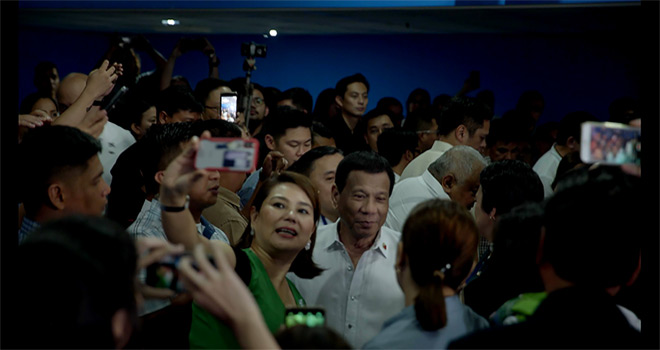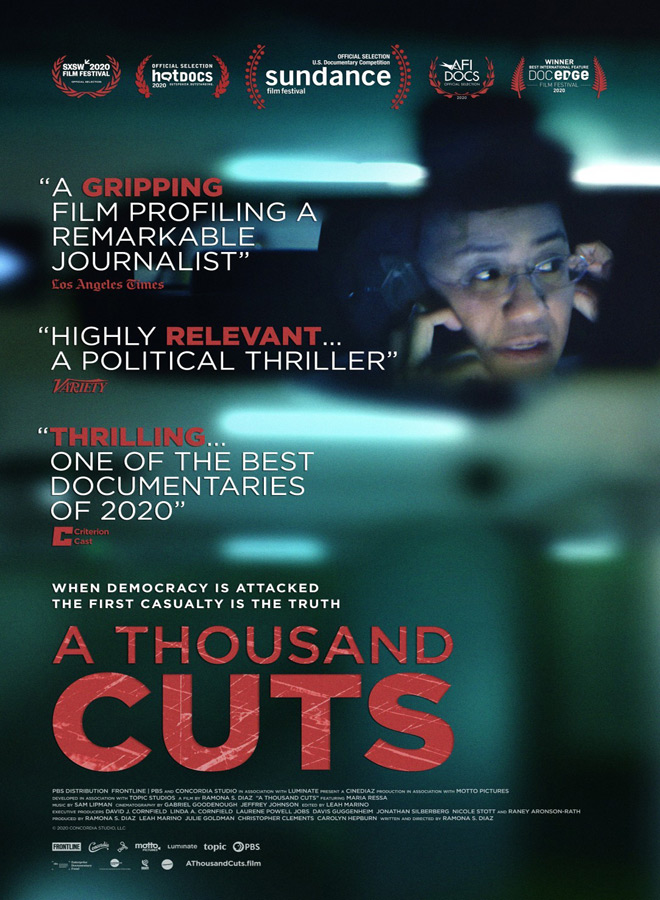In 2016, an election was held in a certain country to see who would replace its previous president as they neared the end of their term. Despite having a chequered history and after making numerous controversial comments, an outside candidate from an opposing party won. Four years later, their rule has become notorious worldwide for its human rights violations, attacks on the media, and criticism from other nations. That might sound familiar to some, especially if they are from the Philippines.

President Rodrigo Duterte is a grim figure. His outbursts have inflamed conflict within and outside the Philippines, from threatening to leave the United Nations to approving of the burial of former dictator Ferdinand Marcos in Taguig’s Heroes’ Cemetery. But it is his War on Drugs that has made him infamous around the world. He has authorised death squads to kill drug users while promising to issue “a thousand pardons a day” to any police officer or soldier accused of human rights violations. Oh, and pardoning himself for sanctioning this mass murder by the end of his term as well. IF he even goes through with elections.
So, yeah, he is likely to join King Leopold II of Belgium and Vlad the Impaler in a ‘World’s Worst Leaders’ book at some point in the future. But what about now? Has there been any pushback against Duterte? If so, how have they fought against him? And what are the consequences of not towing his party’s line? Thanks to PBS Distribution and FRONTLINE, that is where A Thousand Cuts comes in.
Written and directed by Ramona S. Diaz (POV series, Motherland 2017), A Thousand Cuts is due out in virtual cinemas on August 7, 2020. The documentary covers how Rappler, the Philippines’ top online news source, has reported on Duterte’s killings. It shows how Rappler’s founder & CEO Maria Ressa has continued reporting against the government despite harassment and arrests. While on the other side, it reveals how former pop star-turned-government secretary Mocha Uson has fought back with a social media disinformation campaign to mask alleged extrajudicial killings led by General Ronald ‘Bato’ Dela Rosa and others.

The film is largely in English, with subtitles to account for Tagalog and accents. Not that the accents are particularly difficult to understand, but some viewers’ mileage may vary. Still, its aim is to make the viewer a “witness to an epic and ongoing fight for the integrity of human life and truth itself”. So, how is it?
It helps that Rappler is a big news organisation, so the film’s presentation is aided by plenty of sources and flourishes. Like diagrams to show the spread of disinformation online, pop-up patches of harassing social media comments, snaps of articles on the weaponization of Facebook algorithms against democracy, etc. They show how a lie can be seen as truth if the person telling it is popular enough. That is why the President and a pop star declaring Rappler to be ‘unpatriotic’ and ‘fake news’ spreads further than Rappler’s photos and articles of the deceased. Somehow that sounds kind of familiar.
Most of the time the film talks to Ressa and Rappler staff, with the former providing voiceover for segments. Other times, they will follow Dela Rosa on his senatorial campaign, and Uson directly and through her videos. At some points, the film will alternate between coverage, creating interesting contrasts as a consequence. Like Liberal candidate Samira Gutoc saying one cannot be judge, jury, and executioner before the film cuts to Dela Rosa suiting up like a biker. Or a Rappler reporter commenting on an extrajudicial killing in Cessna being followed by Uson accusing Rappler of using bots to tarnish her and other ‘Diehard Duterte Supporters’.

Still, the film has its highlights and lowlights. The contrasts, interviews, and media analysis turn up plenty of food for thought. Uson gives her perspective, which helps viewers understand (though not sympathize) why she would side with Duterte. While Ressa gives her view on how lies spread on social media and how it escalates situations- ones which she handles with a surprisingly cool head given the threats and arrests involved. While on the low side, it has some scenes- largely part of the campaign trails- that do not provide contrasts or much new information. They are few, but they do add up to noticeable lulls in the film’s pacing.
Nonetheless, A Thousand Cuts is still an intriguing look into how an oppressive regime can use disinformation to cover its crimes and corruption while smothering its opponents. How it can use well-placed lies and anger to elevate itself while making contrary opinions sound like enemies of the state. The film may focus on the Philippines, yet its message is global as powers east and west, big and small, have used similar tactics to get ahead.
Despite its lulls, it provides a clear message to viewers; be careful, or they will lose their rights one cut at a time until democracy goes with it. Thus, for these reasons, Cryptic Rock gives this film 4 out of 5 stars.






